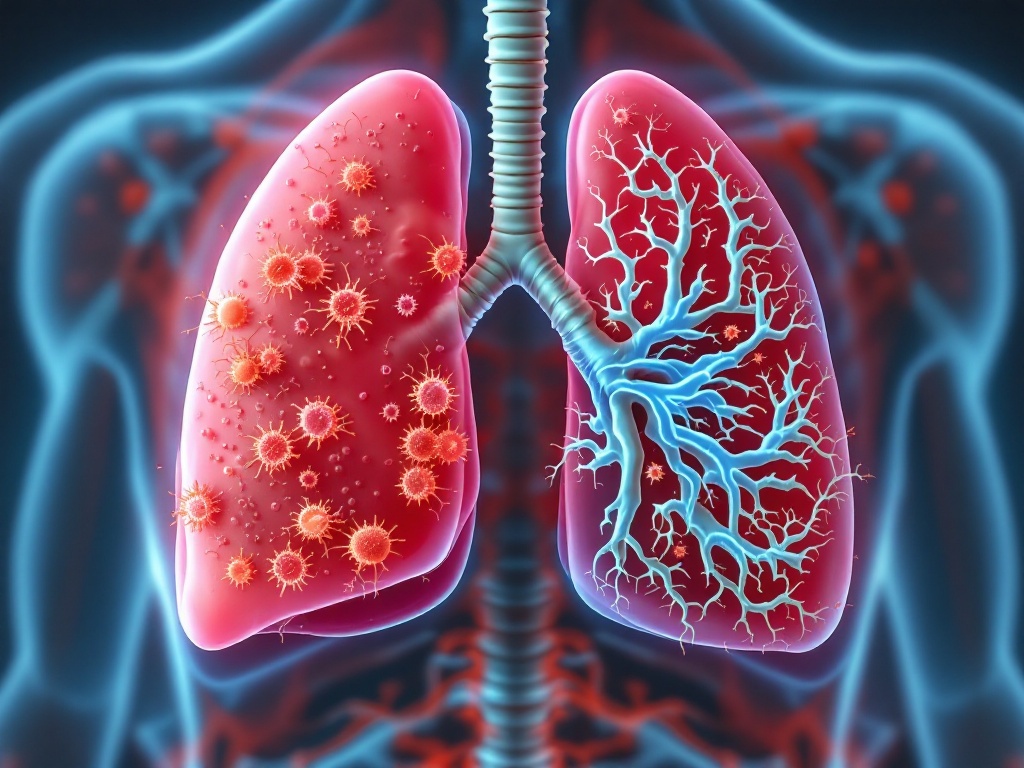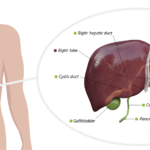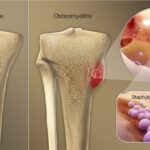Bacteroides lung abscess refers to a localized collection of pus in the lung tissue caused primarily by infection with Bacteroides species. These anaerobic bacteria are part of the normal flora of the human mouth and gastrointestinal tract but can become pathogenic when introduced to the lungs. This condition is a critical medical concern, often requiring prompt diagnosis and treatment to prevent complications.

Causes and Risk Factors
Key Causes of Bacteroides Lung Abscess
- Aspiration of Oral or Gastric Contents: The most common route of infection is aspiration, particularly in individuals with impaired consciousness due to conditions such as alcoholism, seizures, or anesthesia.
- Dental Infections: Poor oral hygiene or dental procedures can introduce Bacteroides into the respiratory tract.
- Obstruction of Bronchial Passages: Tumors or foreign bodies can create conditions favorable for anaerobic bacterial growth.
- Immune Suppression: Conditions like diabetes, cancer, or the use of immunosuppressive drugs increase susceptibility to infections.
Risk Factors
- Chronic alcoholism
- Neurological disorders causing swallowing difficulties
- Gastroesophageal reflux disease (GERD)
- Poor oral hygiene
- Smoking
- Prolonged mechanical ventilation
Symptoms of Bacteroides Lung Abscess
- Persistent Cough: Often productive, with foul-smelling sputum.
- Fever and Chills: Indicating systemic infection.
- Chest Pain: Typically pleuritic and worsened by deep breathing.
- Night Sweats: Common in prolonged infections.
- Fatigue: Due to the systemic impact of the abscess.
- Weight Loss: Resulting from decreased appetite and chronic illness.
- Hemoptysis: Coughing up blood, observed in some cases.
Diagnosis of Bacteroides Lung Abscess
Clinical Evaluation
- Detailed patient history focusing on risk factors such as aspiration events or predisposing medical conditions.
- Physical examination revealing signs like diminished breath sounds or crackles in affected lung regions.
Imaging Studies
- Chest X-ray: Reveals cavitary lesions with air-fluid levels, characteristic of lung abscesses.
- CT Scan: Provides detailed visualization of abscesses and helps distinguish them from tumors or other pulmonary conditions.
Microbiological Testing
- Sputum Culture: Identifies causative organisms, including Bacteroides.
- Bronchoalveolar Lavage (BAL): Collects samples directly from the lungs.
- Blood Cultures: Assesses systemic spread of infection.
Treatment Options
Antibiotic Therapy
- First-Line Antibiotics:
- Metronidazole or a combination of beta-lactam/beta-lactamase inhibitors (e.g., amoxicillin-clavulanate).
- Duration: Typically 4-6 weeks, tailored to patient response.
Adjunct Therapies
- Drainage Procedures: Percutaneous catheter drainage may be necessary for larger abscesses.
- Surgical Intervention: Reserved for cases unresponsive to medical therapy or with complications like empyema.
Supportive Care
- Oxygen supplementation as needed.
- Nutritional support to counteract weight loss and fatigue.
- Physical therapy to improve lung function post-recovery.
Complications of Untreated Bacteroides Lung Abscess
- Empyema: Accumulation of pus in the pleural cavity.
- Sepsis: Systemic spread of infection leading to organ dysfunction.
- Bronchopleural Fistula: Abnormal connection between the bronchial tree and pleural space.
- Chronic Abscess Formation: Persistent or recurrent infection.
Prevention Strategies
- Improved Oral Hygiene: Reduces risk of Bacteroides translocation.
- Aspiration Precautions: For high-risk patients, elevate the head during feeding and ensure careful monitoring.
- Timely Treatment of Dental Infections: Prevents oral flora from reaching the respiratory tract.
- Avoidance of Smoking and Alcohol Abuse: Promotes overall lung health.
- Vaccination: Immunizations like pneumococcal and influenza vaccines reduce the risk of secondary infections.
MYHEALTHMAG

